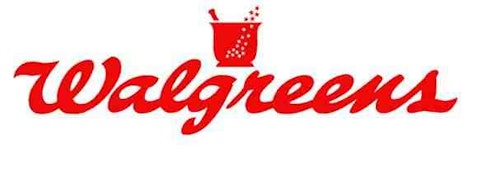Insider buying by directors and executives of any company is always appealing since they have more information about their business than most outsiders, particularly individual investors (these officials mostly plan their purchases in advance). Insider buying is usually considered a good sign as these executives would only invest when they are fairly certain that the stock is either undervalued or is going to rally in the near future.
A recent report by Forbes has revealed that a director of the leading American drug store company Walgreen Company (NYSE:WAG) is betting more than $5 million on the success of his firm. But should you invest in this drug-store giant? The company boasts of strong fundamentals with solid stock performance and the recent dip caused by its earnings miss provided a good entry point.
Insider buying: Ever heard of Stefano Pessina?
Walgreen Company (NYSE:WAG) has recently witnessed insider buying of 34,000 shares for about $1.6 million. This investment has been made by none other than its famed Italian billionaire board member Stefano Pessina, who already invested about $4 million in Walgreen about three months ago.
For those readers who haven’t heard of him, Pessina is the executive chairman of the European drug retailing giant Alliance Boots and was (one of) the brains behind Walgreen Company (NYSE:WAG)’s 45% acquisition of Alliance Boots last year. This was followed by a distribution pact by the two companies with Pennsylvania-based drug wholesaler AmerisourceBergen Corp. (NYSE:ABC). In essence, Pessina, by partnering with Walgreen, has managed to extend his (and Walgreen’s) reach to both sides of the Atlantic.

A month ago, Walgreen Company (NYSE:WAG) announced its quarterly results, which missed analysts’ estimates. Due to its investments in Alliance Boots, the company’s revenue rose 3.2% to $18.3 billion, below estimates of $18.4 billion. Its EPS rose 37% to $0.85, $0.05 below estimates. The front-end sales increased by 0.8%, below the market’s expectations of 0.9%.
Although there were several positives in the earnings release, the markets overreacted and the shares dropped by 5.9% on July 25. The company is now eyeing first-year synergies of $125 million to $150 million with Alliance Boots. It has also signed up more than 75-million subscribers for its Balance Rewards loyalty program and is getting back the customers it lost to its rivals Rite Aid Corporation (NYSE:RAD) and CVS Caremark (NYSE:CVS) during its dispute with the pharmacy benefits manager Express Scripts.
Competitive landscape
The stock of the relatively smaller Rite Aid Corporation (NYSE:RAD) has witnessed phenomenal growth as investors are pinning their hopes on a turnaround. After reporting consecutive losses since 2007, Rite Aid finally posted a net income of $118 million for its previous fiscal year and since then, its shares have taken off. But this is a small player with a volatile stock that has struggled to compete with the growth of generics that are more profitable but are lower priced and therefore hamper the sales growth.
It has lived a difficult life under a heavy debt burden and although it has taken some good steps to maintain its profitability through debt refinancing and store renovations, it has a long way to go. Its stock is already more expensive than Walgreen Company (NYSE:WAG) or CVS Caremark in terms of annual profit estimates. Therefore, I would not recommend Rite Aid Corporation (NYSE:RAD) at these price levels.
On the other hand, CVS Caremark is a blue-chip pharmacy stock that is at par with Walgreen Company (NYSE:WAG), yields a decent return on equity and healthy profit margins (shown in the table below). With increasing patent losses of branded drugs, its sales of generics would increase, causing margin expansion in the coming quarters.
Moreover, the new Affordable Care Act could give a significant boost to CVS’ future sales as millions of formerly uninsured Americans will now have the option to visit any of CVS’ 650 in-store “Minute Clinics” instead of going to hospital emergency rooms.
CVS is ahead of Walgreen Company (NYSE:WAG) in this regard with nearly twice as many clinics and is planning rapid expansion by targeting 1,500 clinics by 2017. Therefore, I am long-term bullish on CVS.
Winning back customers
I believe that in the long run, Walgreen Company (NYSE:WAG) will be able to win back most of its lost customers. The company’s ability to attract clients is evident in the success of its Balance Rewards program. Walgreen was the last among its peers to launch a customer-loyalty card, but now boasts of more subscribers than CVS’s ExtraCare card program and Rite Aid Corporation (NYSE:RAD)’s wellness+ program. The loyalty program requires initial investments, but once it takes off, it translates into a reliable revenue stream for the long run. Moreover, the card also provides Walgreen with insightful data which can be used to increase customer satisfaction as well as shareholder value by giving a much-needed boost to front-end sales.
Walgreen Company (NYSE:WAG)’s stock has risen by 39.6% this year, easily outperforming the S&P 500 ETF (SPY) and CVS, which are up 20.8% and 29.1%, respectively in the same period. Although Walgreen has been far behind Rite Aid Corporation (NYSE:RAD), which has risen by 106.5% in 2013, Walgreen’s strengths lie in its solid 2.5% yield, highest return on equity among its peers and reasonable operating margins.
Interestingly, despite the gigantic 38% dividend-hike announced in December 2012, CVS still gives a significantly lower yield than Walgreen.
| Walgreen | RiteAid | CVS Caremark | |
|---|---|---|---|
| Stock YTD | 39.60% | 106.46% | 29.14% |
| P/E trailing-12 months | 22.42 | 11.81 | 19.27 |
| P/E current yr annual profit est | 16.377 | 19.13 | 15.55 |
| Yield | 2.50% | N/A | 1.50% |
| ROE | 12.62% | N/A | 10.65% |
| Op Margin | 4.82% | 3.36% | 6.11% |
Therefore, I believe that due to the insider buying, its reach outside of the United States with possibilities of increasing exposure in the emerging markets – particularly with Pessina on board – Walgreen Company (NYSE:WAG) looks attractive as a long-term investment. Moreover, its industry leadership, an expected increase in revenue from new partnerships and loyalty program, coupled with a solid financial position makes it even more appealing.
Sarfaraz Khan has no position in any stocks mentioned. The Motley Fool has no position in any of the stocks mentioned.
The article This Executive Is Betting Millions on His Business; Should You Do the Same? originally appeared on Fool.com.
Copyright © 1995 – 2013 The Motley Fool, LLC. All rights reserved. The Motley Fool has a disclosure policy.



